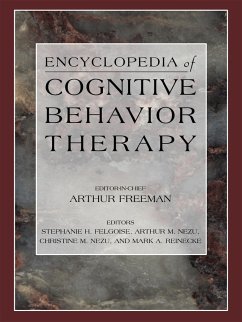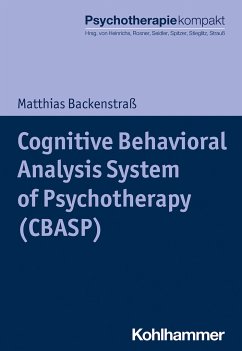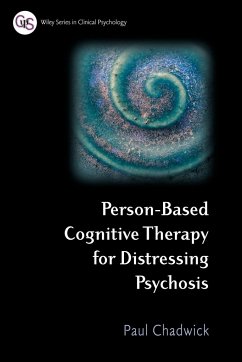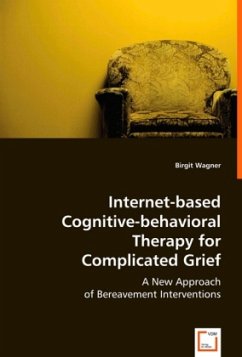
Cognitive Behavioral Therapy for Chronic Illness and Disability
Versandkostenfrei!
Versandfertig in über 4 Wochen
131,99 €
inkl. MwSt.
Weitere Ausgaben:

PAYBACK Punkte
66 °P sammeln!
Severe pain, debilitating fatigue, sleep disruption, severe gastrointestinal distress - these hallmarks of chronic illness complicate treatment as surely as they disrupt patients' lives, in no small part because of the overlap between biological pathology and resulting psychological distress. Cognitive Behavioral Therapy for Chronic Illness and Disability cuts across formal diagnostic categories to apply proven therapeutic techniques to potentially devastating conditions, from first assessment to end of treatment.Four extended clinical case examples of patients with chronic fatigue, rheumatoid...
Severe pain, debilitating fatigue, sleep disruption, severe gastrointestinal distress - these hallmarks of chronic illness complicate treatment as surely as they disrupt patients' lives, in no small part because of the overlap between biological pathology and resulting psychological distress. Cognitive Behavioral Therapy for Chronic Illness and Disability cuts across formal diagnostic categories to apply proven therapeutic techniques to potentially devastating conditions, from first assessment to end of treatment.
Four extended clinical case examples of patients with chronic fatigue, rheumatoid arthritis, inoperable cancer, and Crohn's disease are used throughout the book to demonstrate how cognitive-behavioral interventions can be used to effectively address ongoing medical stressors and their attendant depression, anxiety, and quality-of-life concerns. At the same time, they highlight specific patient and therapist challenges commonly associated with chronic conditions.
From implementing core CBT strategies to ensuring medication compliance, Renee Taylor offers professionals insights for synthesizing therapeutic knowledge with practical understanding of chronic disease. Her nuanced client portraits also show how individual patients can vary-even within themselves.
This book offers clinicians invaluable help with
- Conceptualizing patient problems
- Developing the therapeutic relationship
- Pacing of therapy
- Cognitive restructuring
- Behavioral modification
- Problem solving
- Fostering coping and adapting skills
Taylor's coverage is both clean and hands-on, with helpful assessments and therapy worksheets for quick reference. Cognitive Behavioral Therapy for Chronic Illness and Disability gives practitioners of CBT new insights into this population and provides newerpractitioners with vital tools and tactics. All therapists will benefit as their clients can gain new confidence and regain control of their lives.
Four extended clinical case examples of patients with chronic fatigue, rheumatoid arthritis, inoperable cancer, and Crohn's disease are used throughout the book to demonstrate how cognitive-behavioral interventions can be used to effectively address ongoing medical stressors and their attendant depression, anxiety, and quality-of-life concerns. At the same time, they highlight specific patient and therapist challenges commonly associated with chronic conditions.
From implementing core CBT strategies to ensuring medication compliance, Renee Taylor offers professionals insights for synthesizing therapeutic knowledge with practical understanding of chronic disease. Her nuanced client portraits also show how individual patients can vary-even within themselves.
This book offers clinicians invaluable help with
- Conceptualizing patient problems
- Developing the therapeutic relationship
- Pacing of therapy
- Cognitive restructuring
- Behavioral modification
- Problem solving
- Fostering coping and adapting skills
Taylor's coverage is both clean and hands-on, with helpful assessments and therapy worksheets for quick reference. Cognitive Behavioral Therapy for Chronic Illness and Disability gives practitioners of CBT new insights into this population and provides newerpractitioners with vital tools and tactics. All therapists will benefit as their clients can gain new confidence and regain control of their lives.














